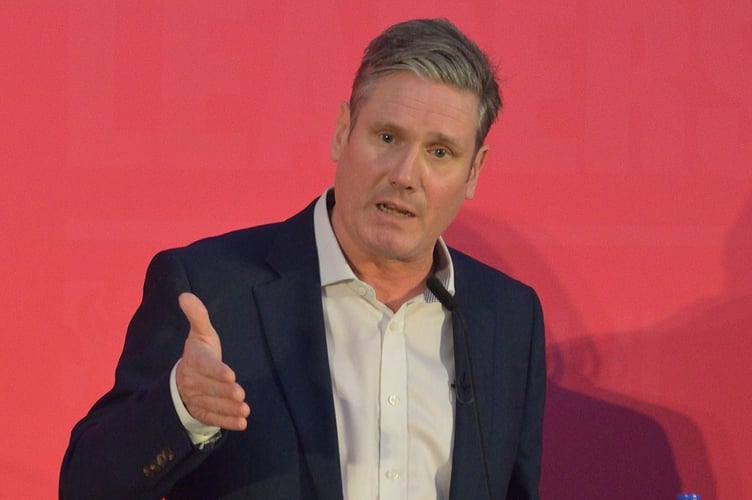After the Labour Party conference, Keir Starmer and the Labour Party have seen their approval ratings increase, according to Opinium. As one of the two delegates representing the now former SW Surrey constituency I was in Liverpool, in the conference hall at the start, Sunday at 9am and throughout the entire week, listening carefully to each shadow cabinet minister spell out their aims as part of Labour’s five mission-led plans for government. And yes, I was there for Keir’s sparkling speech.
I was also able to talk to the many focus groups, NGOs, unions and industry trades bodies – of which there were many – outside at the fringe event and had interesting conversations with organisations that had also been to the Tory conference the week prior.
A representative of the renewables energy sector told me there was a huge difference between the two conferences. Rather cryptically and illuminating was the statement: “The Labour Party are listening to us.”
I agree wholeheartedly and people I’m talking to are noticing. Indeed, after shadow chancellor Rachel Reeves’ speech on Monday, Iain Anderson, the chairman of Cicero, up until February a Tory voter but now firmly backing Labour, called it the “most impressive speech at conferences in decades” (BBC Politics Live).
The cheer that went through the conference hall after Reeves’ announcement of her intent to claw back the £7 billion of taxpayer money lost to Covid contract fraud, and create iron-clad fiscal rules to prevent another Truss/Kwarteng-style car crash budget, was possibly one of the loudest of the week.
Another high point was Reeves’ unequivocal ban on bonuses awarded to failing water bosses. After I wrote to Jeremy Hunt a few years back, citing an FT article highlighting the pitfalls of Thames Water loans, it was no surprise this year when the utility giant was staving off bankruptcy under a £14 billion debt pile it has accrued.
We all know far too well here as customers that the industry has been condemned for sewage spills, a lack of infrastructure investment and rising bills.
Thames Water enjoys monopoly access to a captive customer base of 15 million people in the south east of England, but is a classic example of “spectacular regulatory failure”, says Dieter Helm in the Financial Times.
The first lesson from this “fiasco”, says Patrick Hosking in The Times, is that monopolies sold to the private sector must be “regulated with an unremitting and unforgiving rigour if they are not to misbehave”.
Jeremy Hunt and his government welcomed Sarah Bentley, former CEO of Thames Water, and despite being fully aware of all the above, did nothing. Meanwhile, the Environment Agency, which monitors water quality, had its funding slashed.
We’ve all been affected by the cost-of-living crisis. British people are facing challenges with higher bills and stagnant wages.
The only way to cut energy bills for good and deliver energy security is to shift decisively to clean, home-grown low carbon power.
A zero-carbon electricity system by 2030, five years before the current government’s aim, is the first of Labour’s five missions and shows the long-term solutions we are all wanting from our government.
The party has already made its £28bn per year climate investment pledge. By creating Great British Energy, a new publicly-owned clean power generation company to create new jobs, growth and cut your energy bills – making families up to £1,400 better off – it will deliver energy security so we’re not dependent on dictators like Putin.
I am a parent of two adult sons, both paying high rents and bills in different parts of the country. They have articulated a very real fear of never being able to afford to buy their own home. The Labour Party’s mission to build 1.5 million new homes, with priority to first-time buyers, gives them hope.
Emma Norris from the Institute for Government states it perfectly: “Government has been stuck in a cycle of short-term decision making for too long... green industries have been inhibited by changes of direction – for example, over onshore wind – and the failure of politicians to make key decisions. Mission-driven government is the right approach and the long-term focus is welcome”.
For the sake of my sons, and the country, I couldn’t agree more.
It’s time for change.
By Shirley Lewis
Haslemere Labour Party




